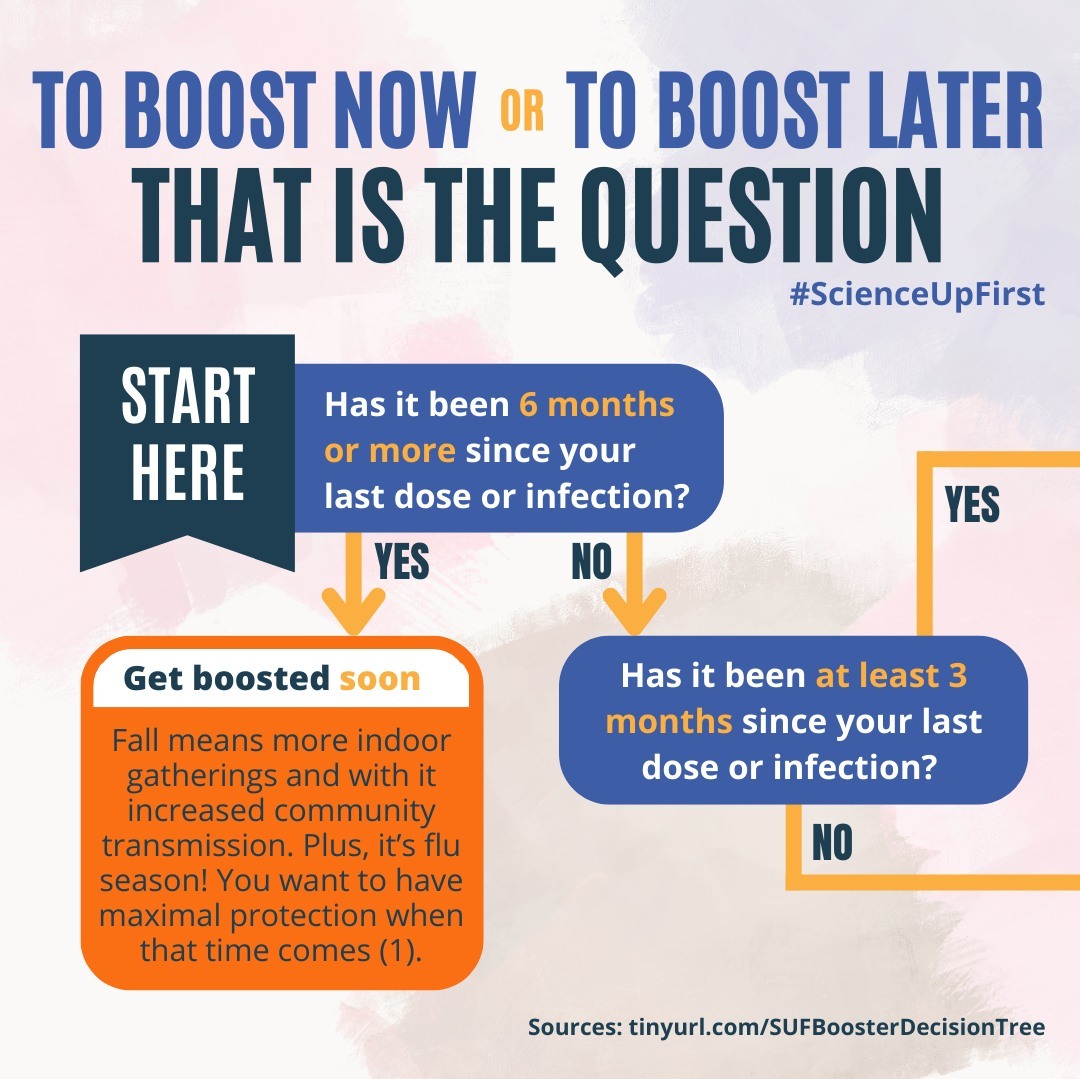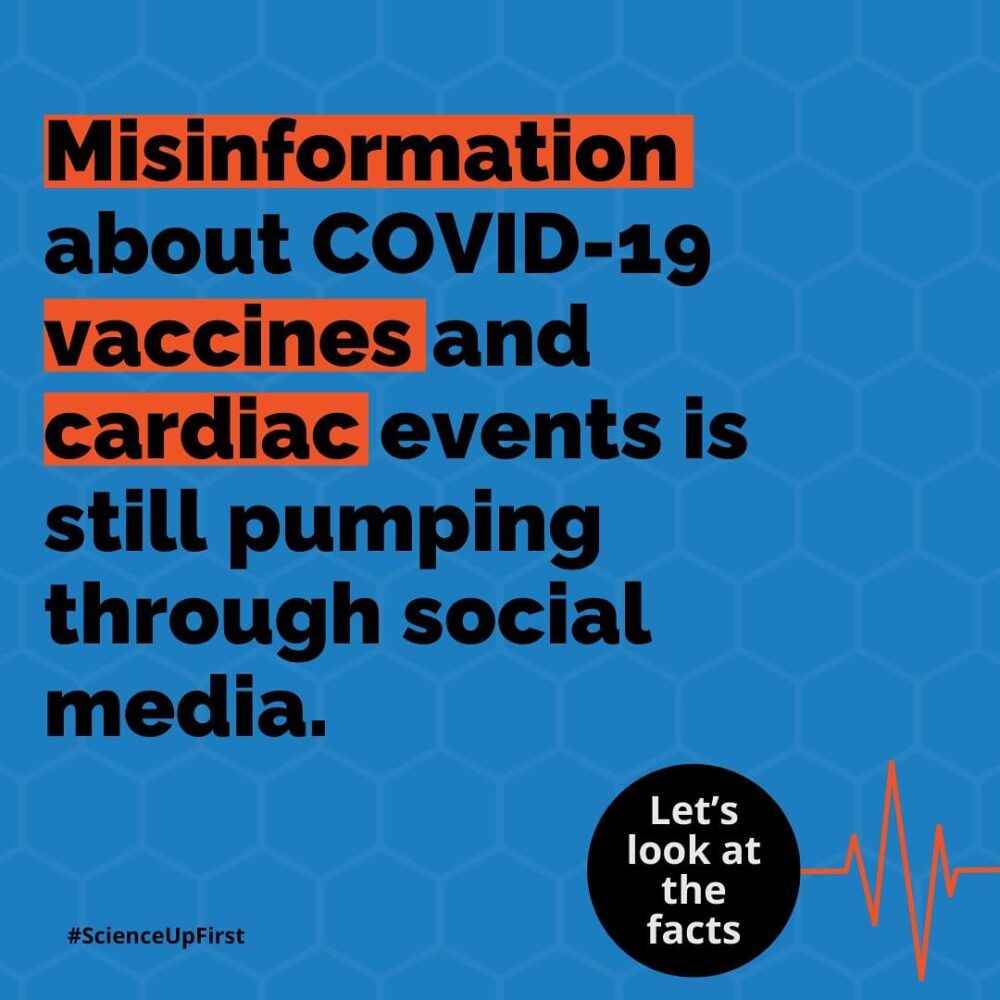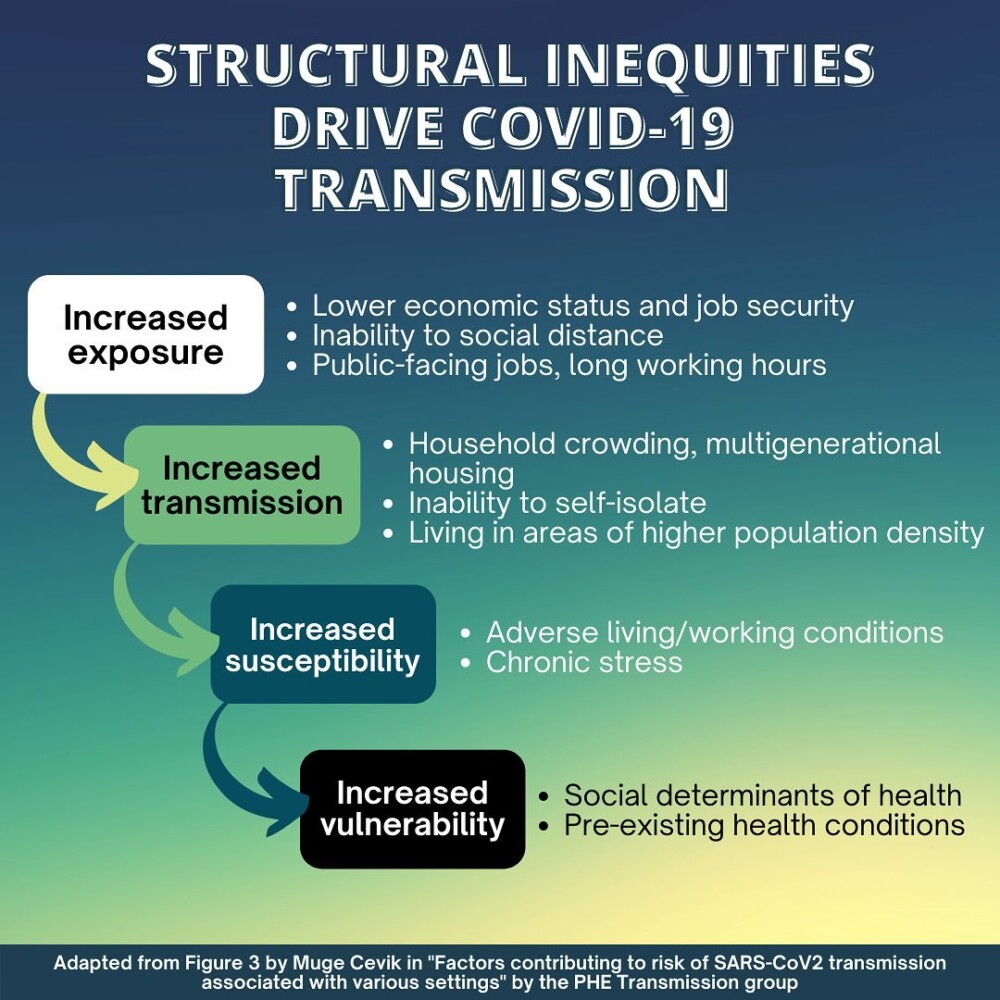
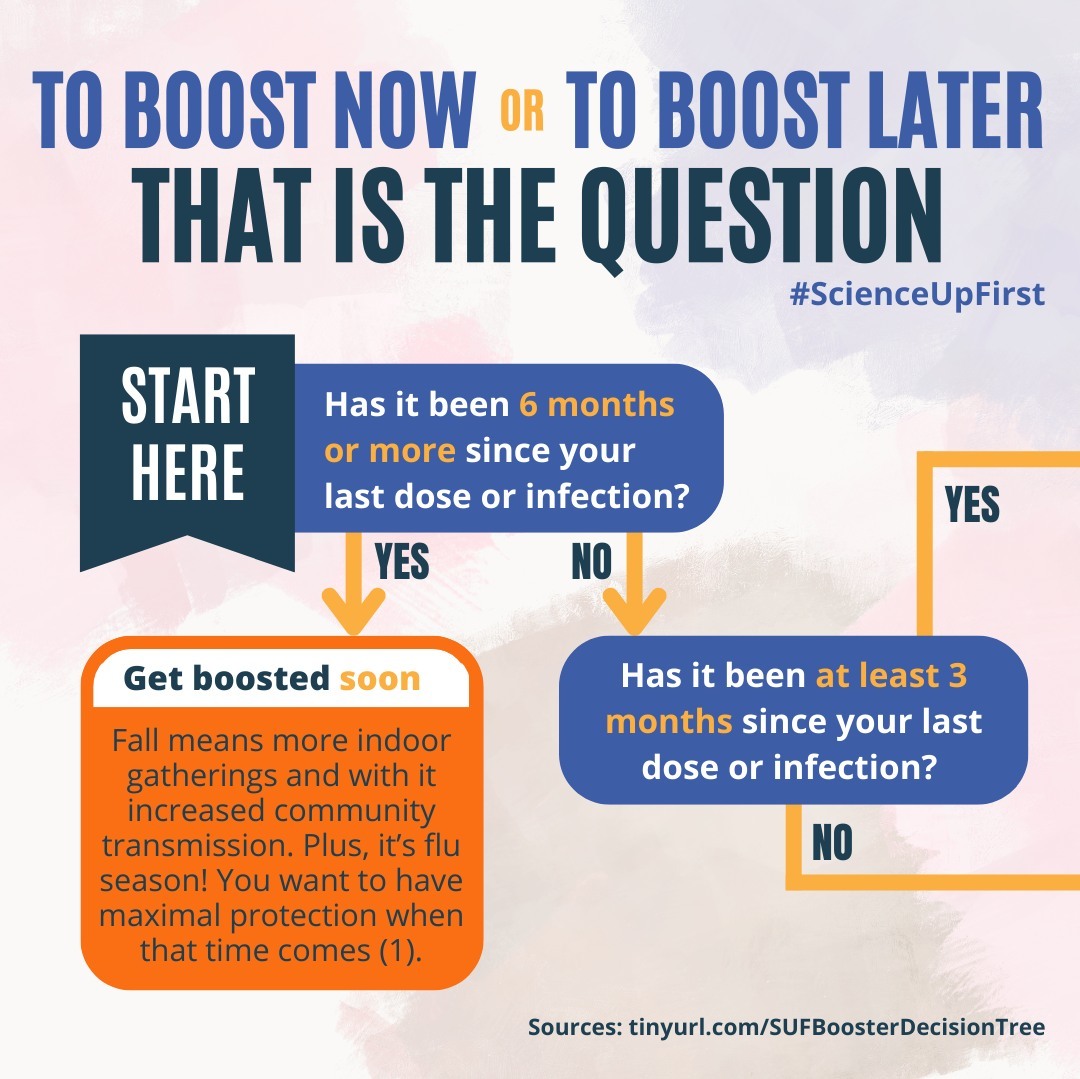
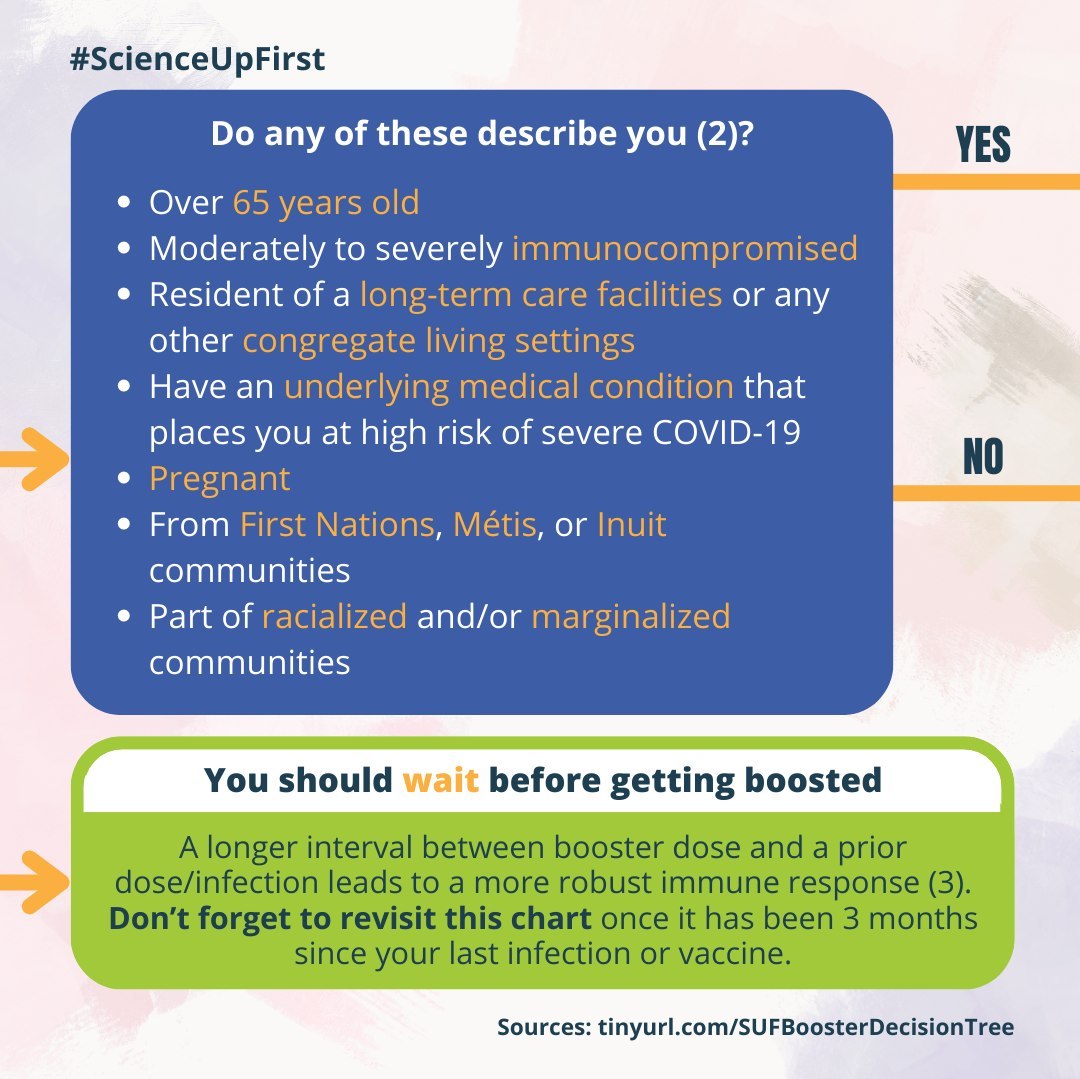
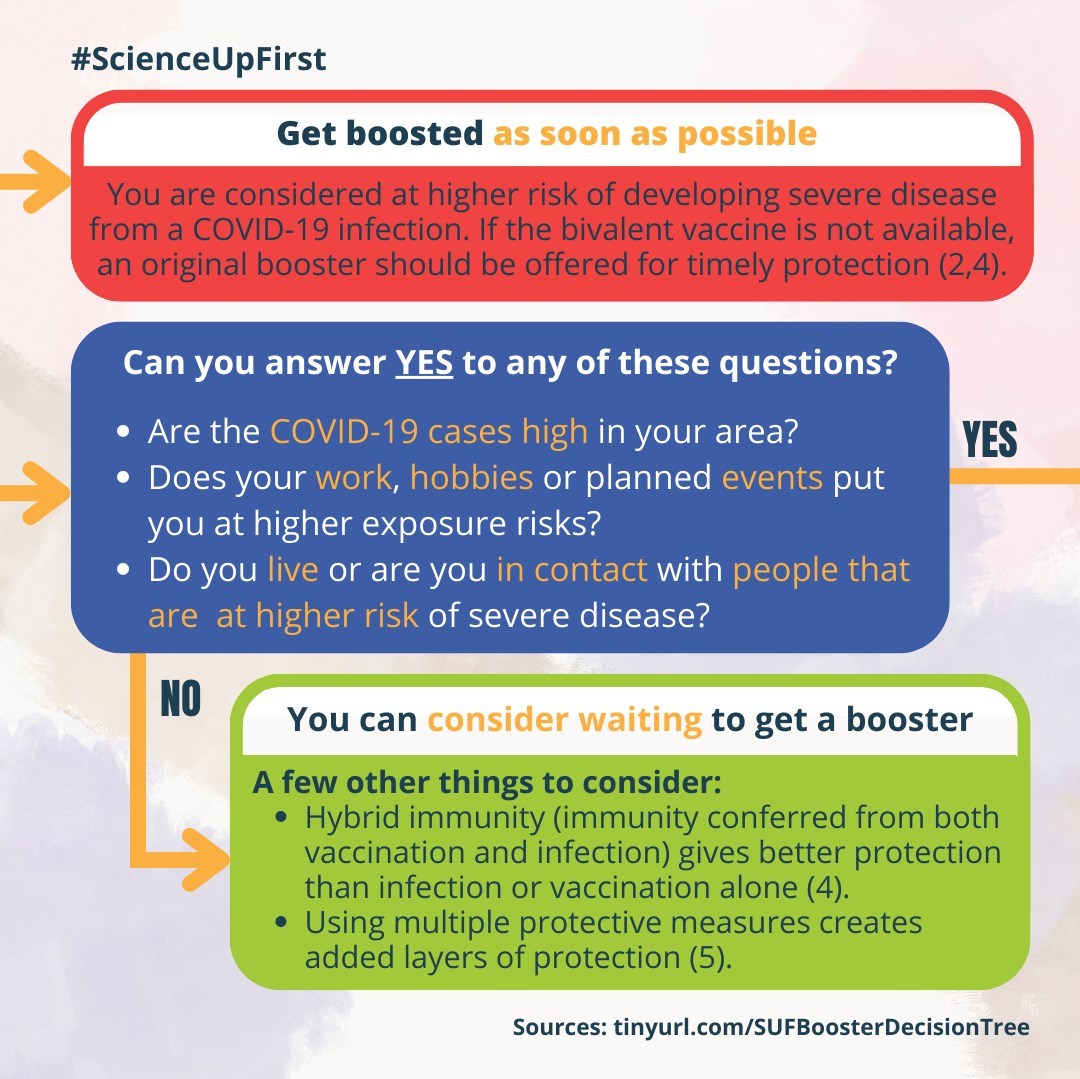
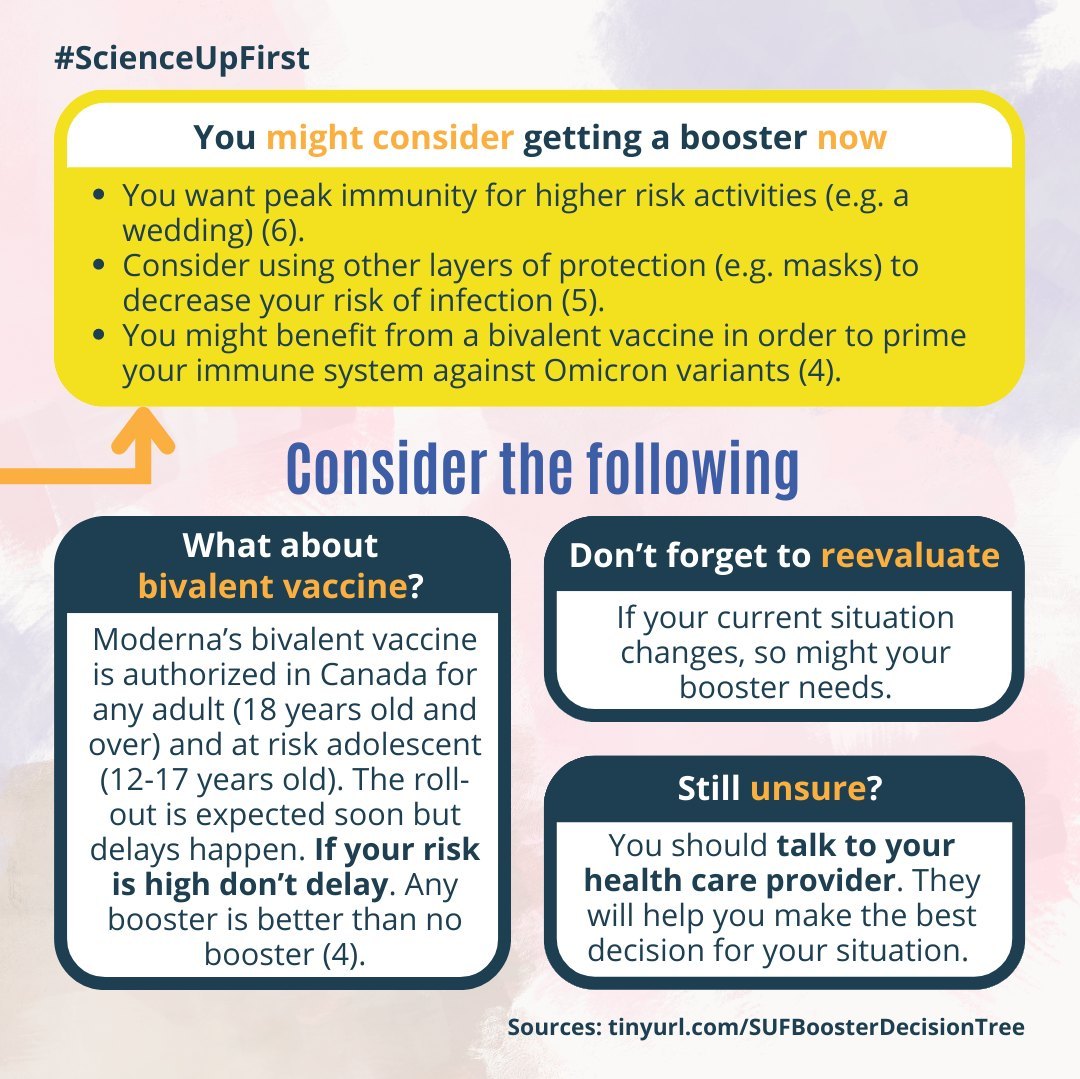
START HERE (Accessible Version)
- Has it been 6 months or more since your last dose or infection?
-
- Yes (2)
- No (3)
-
- Get boosted soon.
-
- Fall means more indoor gatherings and with it increased community transmission. Plus, it’s flu season! You want to have maximal protection when that time comes (1).
-
- Has it been at least 3 months since your last dose or infection?
-
- Yes (4)
- No (5)
-
- Do any of these describe you (2)?
-
-
-
- Over 65 years old
- Moderately to severely immunocompromised
- Resident of a long-term care facilities or any other congregate living settings
- Have an underlying medical condition that places you at high risk of severe COVID-19
- Pregnant
- From First Nations, Métis, or Inuit communities
- Part of racialized and/or marginalized communities
-
- Yes (6)
- No (7)
-
-
- You should wait before getting boosted.
-
- A longer interval between booster dose and a prior dose/infection leads to a more robust immune response (3).
- Don’t forget to revisit this chart once it has been 3 months since your last infection or vaccine.
-
- Get boosted as soon as possible
- Can you answer YES to any of these questions?
-
-
- Are the COVID-19 cases high in your area?
- Does your work, hobbies or planned events put you at higher exposure risks?
- Do you live or are you in contact with people that are at higher risk of severe disease?
- Yes (8)
- No (9)
-
-
- You might consider getting a booster now.
- You can consider waiting to get a booster
Consider the following
What about the bivalent vaccine?
Moderna’s bivalent vaccine is authorized in Canada for any adult (18 years old and over) and at risk adolescent (12-17 years old). The roll-out is expected soon but delays happen. If your risk is high don’t delay. Any booster is better than no booster (4).
Don’t forget to reevaluate
If your current situation changes, so might your booster needs.
Still unsure?
You should talk to your health care provider. They will help you make the best decision for your situation.
To boost now, or to boost later, that seems to be the question on everyone’s mind lately.
First of all, if you still have not gotten your first booster, stop scrolling and book an appointment. Boosters are going to provide you with the most protection possible.
If you already had your first booster you might wonder whether you should get your second booster now or wait. The reality is that this decision will depend on many factors such as the amount of time that has passed since your last dose or infection, if you are at higher risk of severe outcome as well as your level of risk exposure.
We have put this decision tree together to help you decide how soon you should get your second booster. If you are still unsure, please reach out to your health care provider. They are the best resources to help you make an informed decision.
Don’t forget to revisit this decision tree often. If your situation changes, your booster needs might too.
Share our original Tweet!
To boost now, or to boost later, that seems to be the question on everyone’s mind lately.
We have put together a decision tree to help you decide how soon you should get your fall booster.#ScienceUpFirst pic.twitter.com/am7d4oa9KC
— ScienceUpFirst | LaScienced’Abord (@ScienceUpFirst) September 8, 2022
View our original Instagram Post!
View this post on Instagram
- NACI Interim guidance on planning considerations for a fall 2022 COVID-19 vaccine booster program in Canada | FR : CCNI: Orientations provisoires sur des considérations relatives à la planification d’un programme de rappel de vaccins contre la COVID-19 pour l’automne 2022 au Canada
- Description of individuals who are at increased risk of severe illness from COVID-19 | FR : Description des personnes présentant un risque accru de maladie sévère due à la COVID-19
- Recent SARS-CoV-2 infection abrogates antibody and B-cell responses to booster vaccination
- NACI Recommendations on the use of bivalent Omicron containing mRNA COVID-19 vaccines
- The Swiss Cheese Model of Pandemic Defense
- Do I need a COVID booster? When should I get it?

